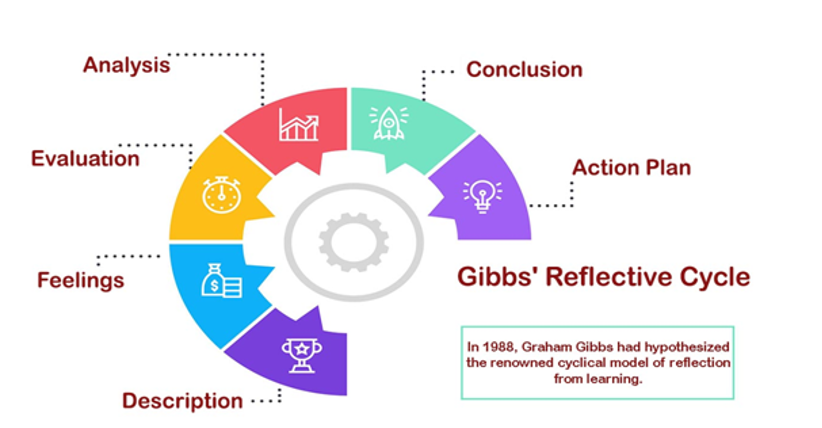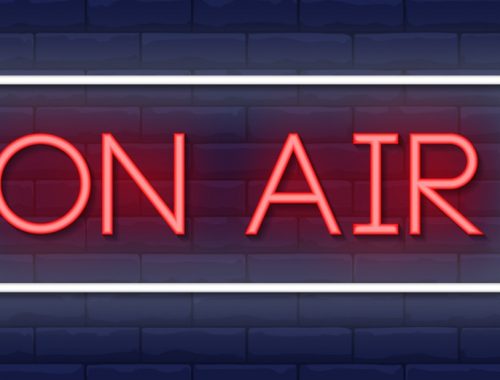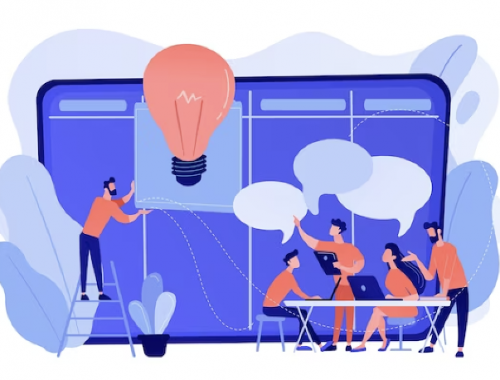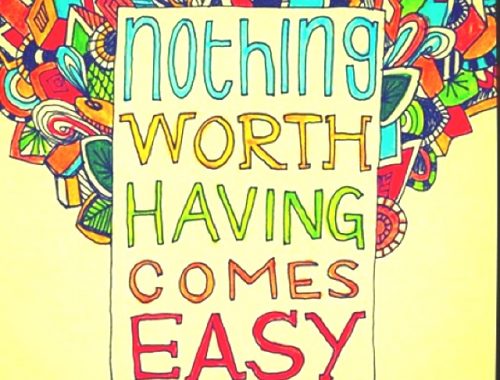Struggling with ‘imposter syndrome’
YES…finally. I have just finished editing the video I’ve been working on for the last few days and now I’m finally finished. I send the final cut to the head of the department, pack up my things and head home after a successful day at Ulster Tatler.

At least I thought it was a successful day…the following Tuesday I arrived at the office expecting it to be a typical morning, but as soon as I sat down, I heard, “Emma, come into my office to talk about the video…needs a few changes.” After the meeting I couldn’t help but feel defeated. Where I thought I did well and followed the brief, they seemed to have an endless list of ‘small’ changes that resulted in me having to redo the entire video. Logically I knew that this is just part of the business, that it’s difficult to create something that everyone approves of first time. However, that didn’t stop that sinking feeling in my stomach. I felt as if I shouldn’t be there, that I ‘obviously’ wasn’t good enough to be working there (even if it was an unpaid placement), and that maybe I wasn’t good enough to work in this industry at all. Later that evening I arrived home, began scrolling aimlessly on TikTok and came across a video describing what it’s like to experience ‘imposter syndrome’ and I thought to myself, “oh…so that’s what I’ve been feeling…”
In this article I will be using Gibb’s reflective model to help structure my reflective analysis, as I feel that it’s structure best fits with my own personal reflection on my time at Ulster Tatler.

Upon looking into imposter syndrome, I discovered that many people struggle with the same thoughts and feelings in the workplace, its actually a psychological phenomenon, “People with imposter syndrome have a sense of inadequacy, dismiss their achievements, and are very critical of themselves,” says Dr. Pei-Han Cheng a psychologist at the Center for Counseling and Consultation at St. John’s University in New York City. “Most of the time, they don’t have an accurate understanding of how competent they actually are because their mind is clouded by this belief that ‘I am a fraud.’” (Gross, 1). What I was experiencing was not only exclusive to myself, but so common that psychologists have done extensive research on the topic.
While the feelings I was experiencing in that moment made me feel incompetent and not deserving of being in the position I was placed, I found comfort in the knowledge that I was not alone in these feelings, that there were other people out there like me who also felt just as inadequate, and surely not all those people could possibly be as bad at their jobs as they feel like they are. That gave me a glimmer of hope.
“According to the International Journal of Behavioral Science, more than 70% of people are affected by workplace imposter thoughts at some point in their lives. And while specific workplace pressure-points vary across careers, the internal symptoms typically remain the same.” (Rubinstein, 1)

Looking back, I can begin to understand where my feelings of imposter syndrome originated, I can see how my more anxious nature may have caused these thoughts of feeling as though my efforts weren’t good enough, as this has been a common theme for many endeavours in my own life. I can understand how my employers’ comments were not meant as a personal criticism, but rather simply a comment on changes to a video for their award show campaign, nothing more than that. I can see that these critics did not mean that I did a bad job on the video, but rather that he had a different vision of the outcome. This change of mindset provided great comfort and reassurance to myself and allowed me to feel more comfortable with receiving criticism in work.
During this time, I also discovered a surprising ‘upside’ to imposter syndrome, “by leaning into the feelings of inadequacy – rather than trying to resist or overcome them – and putting extra effort into communication, imposters can actually outperform their non-imposter peers in interpersonal skills.” (Rubenstein,1). Perhaps the ‘imposter syndrome’ did have its positive effects after all, as once my placement period was over the head of the magazine invited me into his office and offered me a paid internship position. To say I was shocked is an understatement, where I felt I was undeserving to be there simply as a placement student…I was offered a paid internship… “I must have done something right.” I thought to myself, I had kindly accepted the offer and for the first time during my stay working for Ulster Tatler, I felt genuinely proud of myself.

forward, I aim to implement more confidence in myself and my abilities as I prepare to start my career after university. Knowing that a lot these ‘incompetent’ and ‘inadequate’ feelings are simply in my own mind and not reality, but hey, maybe this ‘imposter syndrome’ is a little helpful after all…
Works Cited:
Support (2021) Gibb’s reflective model: Online assignment help UK, Online essay writing service. Available at: https://sourceessay.com/gibbs-reflective-model-online-assignment-help-uk/ (Accessed: April 18, 2023).
Rubinstein, P. (2022) The hidden upside of imposter syndrome, BBC Worklife. BBC. Available at: https://www.bbc.com/worklife/article/20210315-the-hidden-upside-of-imposter-syndrome (Accessed: April 18, 2023).
Gross, E.L. (no date) How to overcome imposter syndrome at work, Monster.com. Available at: https://www.monster.com/career-advice/article/how-to-overcome-imposter-syndrome-0717 (Accessed: April 18, 2023).
ERROR: Proceed with Caution.
You May Also Like

I Was Just… A Voice.
7 April 2023
Keep On Keeping On – Bouncing Back From Disappointment
14 April 2023
